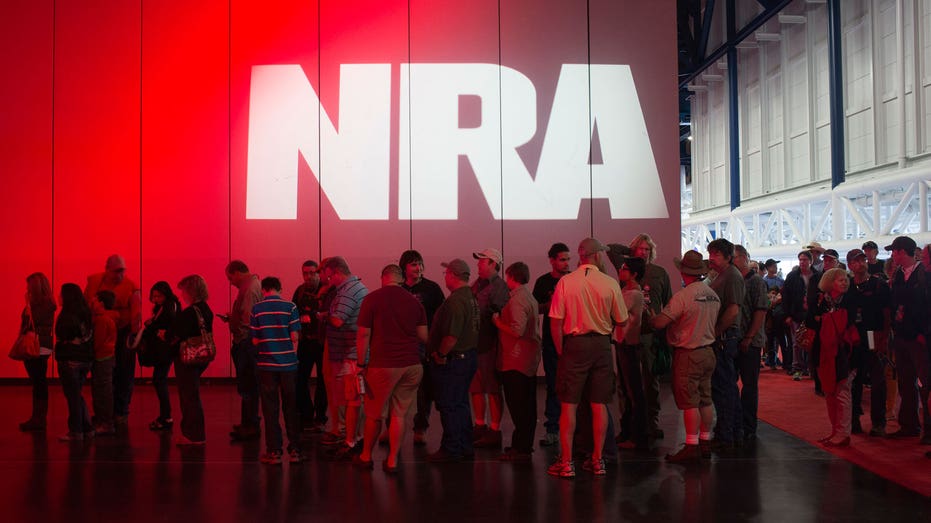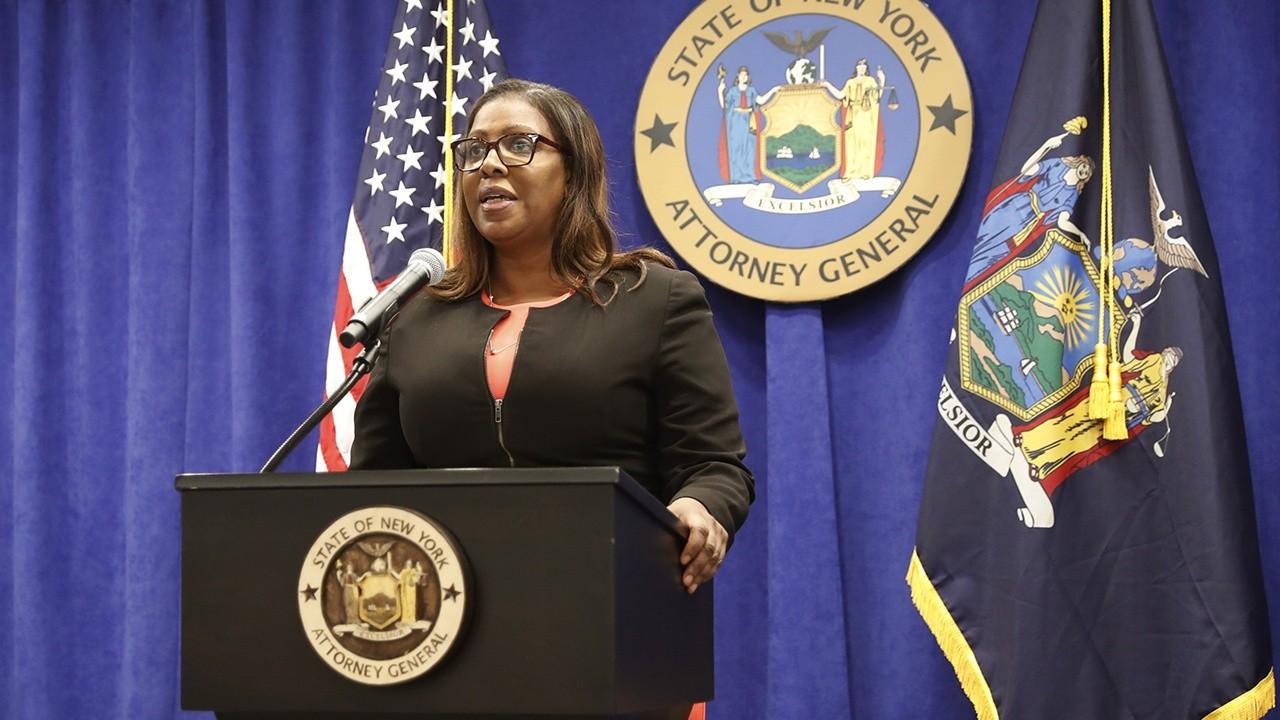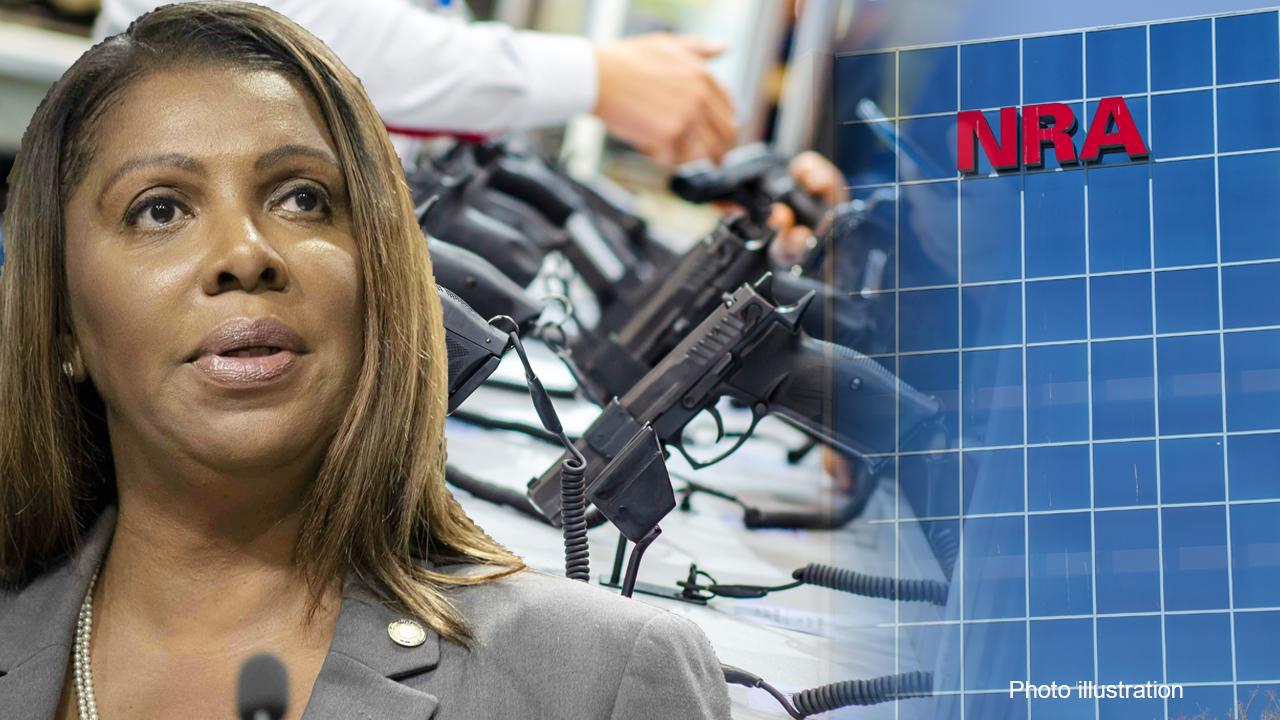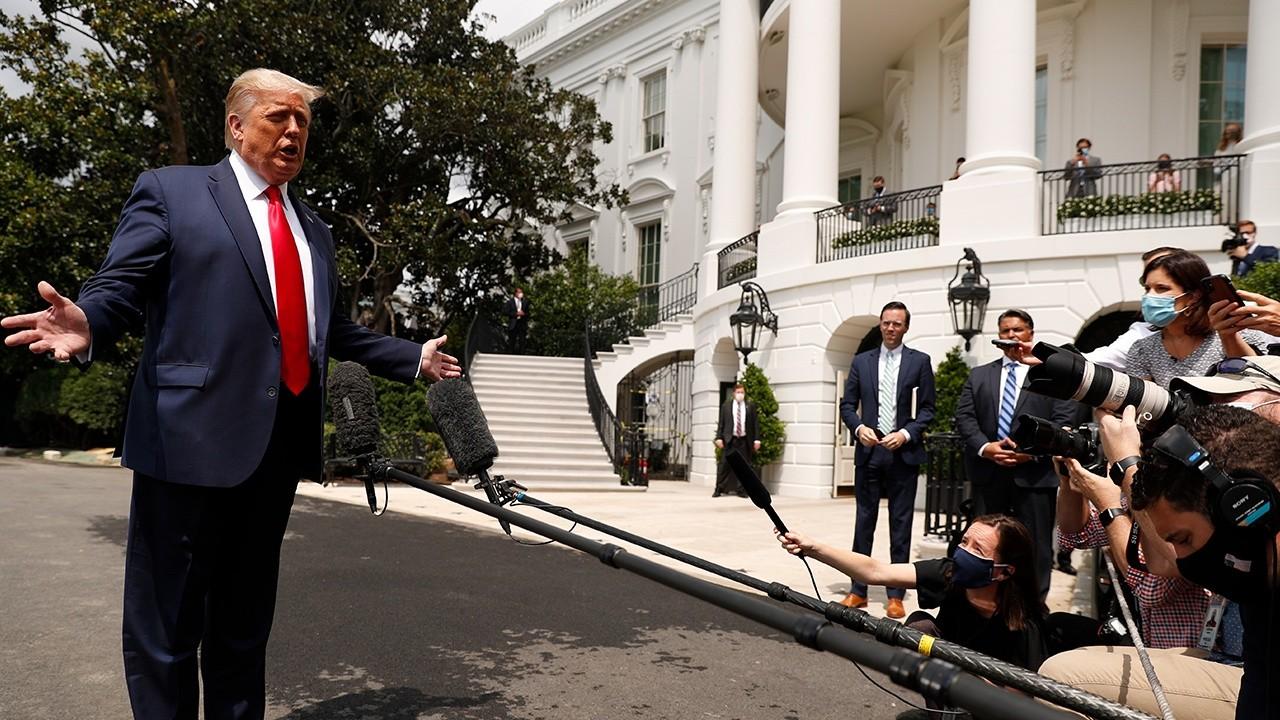Hollywood producer emerges as key figure in alleged NRA financial abuses
David McKenzie did business with gun group, lent CEO Wayne LaPierre his 108-foot yacht; NRA cites business rationale
An Emmy-award winning Hollywood producer with longtime ties to the National Rifle Association has emerged as a major figure in the New York attorney general's case alleging corruption and spending abuses at the nonprofit gun-rights group.
A lawsuit filed last week by the office of Attorney General Letitia James against the NRA alleges that the producer, David McKenzie, was the "principal stakeholder" in four large NRA vendors that together were paid $100 million by the NRA in recent years.
Mr. McKenzie also lent NRA CEO Wayne LaPierre his 108-foot yacht on several occasions, paid for Mr. LaPierre's stays at a Bahamas resort, and Mr. McKenzie and his family received costly gifts from Mr. LaPierre at the NRA's expense, the lawsuit says.
Mr. LaPierre traveled by private jet to Los Angeles to meet with Mr. McKenzie at least 20 times between 2013 and 2017, the complaint says.
NRA’S POLITICAL SPENDING PLUNGES AS LAWSUITS, CONTROVERSIES HIT
Mr. McKenzie isn't named in Ms. James's complaint but is referred to as the "MMP Principal" -- a reference to Membership Marketing Partners LLC, one of the NRA vendors with which he was allegedly involved. Mr. McKenzie's identity is clear from other public documents and prior Wall Street Journal interviews with him.
Among other things, the complaint said Mr. LaPierre violated NRA policy by taking gifts from an NRA contractor -- the use of the yacht -- and failed to disclose the gifts on annual NRA ethics forms.
Mr. McKenzie said he hadn't read the complaint and couldn't discuss any litigation. In prior interviews with the Journal, he defended his dealings with the NRA as appropriate.
Ms. James's suit seeks to dissolve the NRA, alleging that years of expense abuses, self-dealing and lax governance meant the NRA should no longer continue as a nonprofit entity.
The NRA struck back with a federal lawsuit claiming that Ms. James, a Democrat, was trying to destroy the NRA for political reasons. "We're ready for the fight. Bring it on," Mr. LaPierre said in a statement last week, adding that the NRA was "committed to good governance."
NEW YORK AG SEEKS TO DISSOLVE NRA IN NEW LAWSUIT
Mr. LaPierre didn't respond to a message left at NRA headquarters. He told Ms. James's office that the Bahamas trips and yacht stays were justified for business reasons, such as donor cultivation, the attorney general's complaint says.
In a statement, Charles Cotton, an NRA director, said arrangements with vendors such as MMP "are reviewed, vetted and approved." He also said that the "trips in question" were undertaken "to drive donations, third-party support, and enormous visibility for the NRA brand."
NRA President Carolyn Meadows, in a separate statement, lauded Mr. LaPierre's accomplishments in building the NRA, and said "Wayne LaPierre does not need to make any apologies to me about his travel arrangements, vendor relationships, or marketing decisions."
NRA FIGHTS BACK, FILES ITS OWN SUIT AGAINST NY ATTORNEY GENERAL SEEKING TO DISBAND ORGANIZATION
As a nonprofit, the NRA, registered in New York and regulated by the state's attorney general, is required to use its money to advance its social-welfare mission, not for the benefit of individuals.
James Fishman, a Pace University law professor and co-author of a textbook on nonprofit law, said in general it would be a conflict of interest for a CEO of a nonprofit to accept significant personal benefits from a major vendor. A CEO in that position might be reluctant to push the vendor for lower prices or better terms, he said.
The 71-year-old Mr. McKenzie is president of Associated Television International Inc., a Los Angeles production company best known for making magic and travel shows and producing TV specials such as the Daytime Emmy Awards. He has won several honors, including a Daytime Emmy for a documentary about poverty in Africa.

Attendees line up to meet musician Ted Nugent (not pictured) during the National Rifle Association's annual meeting in Houston, Texas, on May 5, 2013. (REUTERS/Adrees Latif)
McKenzie is a stage name; his legal name is David Stanton, according to public documents.
Mr. McKenzie's relationship with Mr. LaPierre was a source of controversy within the NRA nearly 25 years ago, when the NRA chief was relatively new to the top job.
Amid a boardroom power struggle, members of one faction raised concerns about "cronyism" with major vendors, according to documents later filed by the dissidents with the Federal Election Commission.
The then-chairman of the NRA's finance committee in an internal memo wrote that Mr. LaPierre had directed $14.3 million to Mr. McKenzie's Associated Television "based on a vague personal 'purchase order,'" according to the filings. Some of the money, the memo said, was spent on "The Wayne LaPierre Radio Show," a weekly, two-hour production that the finance chair called a "vanity" project.
At the time, Mr. LaPierre said of the dissidents: "We're being slashed from within with a lot of inaccuracies and a lot of falsehoods, and it's destructive to the organization."
The dissidents were beaten back after Mr. LaPierre's main rival was defeated in a bid for a top board job.
Mr. McKenzie's Associated Television has continued to work for the NRA. He also has become what Ms. James's office called the principal stakeholder in three other NRA contractors.
The three firms started business with the NRA on the same date in 2011 and share the same CEO and address at the NRA's headquarters in Fairfax, Va., the complaint says.
Of the $100 million paid to the McKenzie companies, the largest share -- $60 million -- went to MMP for mailing and fundraising, according to the complaint.
Mr. LaPierre signed most of the contracts with Mr. McKenzie's companies, the complaint says, but denied any role in negotiating their terms.
Starting in the late 1990s, the NRA paid Mr. McKenzie's Associated Television to produce and distribute a true-crime TV series called "Crime Strike," hosted by Mr. LaPierre, the complaint says.
GET FOX BUSINESS ON THE GO BY CLICKING HERE
Former "Crime Strike" staffers said it was a low-budget affair, costing less than $50,000 per episode in the early years. In recent years, Mr. McKenzie said in a prior interview, some existing episodes were "refreshed" -- which TV professionals said was an inexpensive way to recycle old material.
The NRA has paid Associated Television nearly $17 million since 2014, according to the attorney general's complaint, including $4.7 million from January 2018 to May 2019.
Since 2015, Mr. LaPierre has visited the Bahamas at least eight times, taking private flights at NRA expense, the complaint says. Sometimes, he stayed at the Atlantis resort on Paradise Island, with the lodging tab picked up by Mr. McKenzie, the complaint alleges, while other times Mr. LaPierre and family members stayed aboard the producer's yacht.
--Joe Flint contributed to this article.
Write to Mark Maremont at mark.maremont@wsj.com
CLICK HERE TO READ MORE ON FOX BUSINESS






















